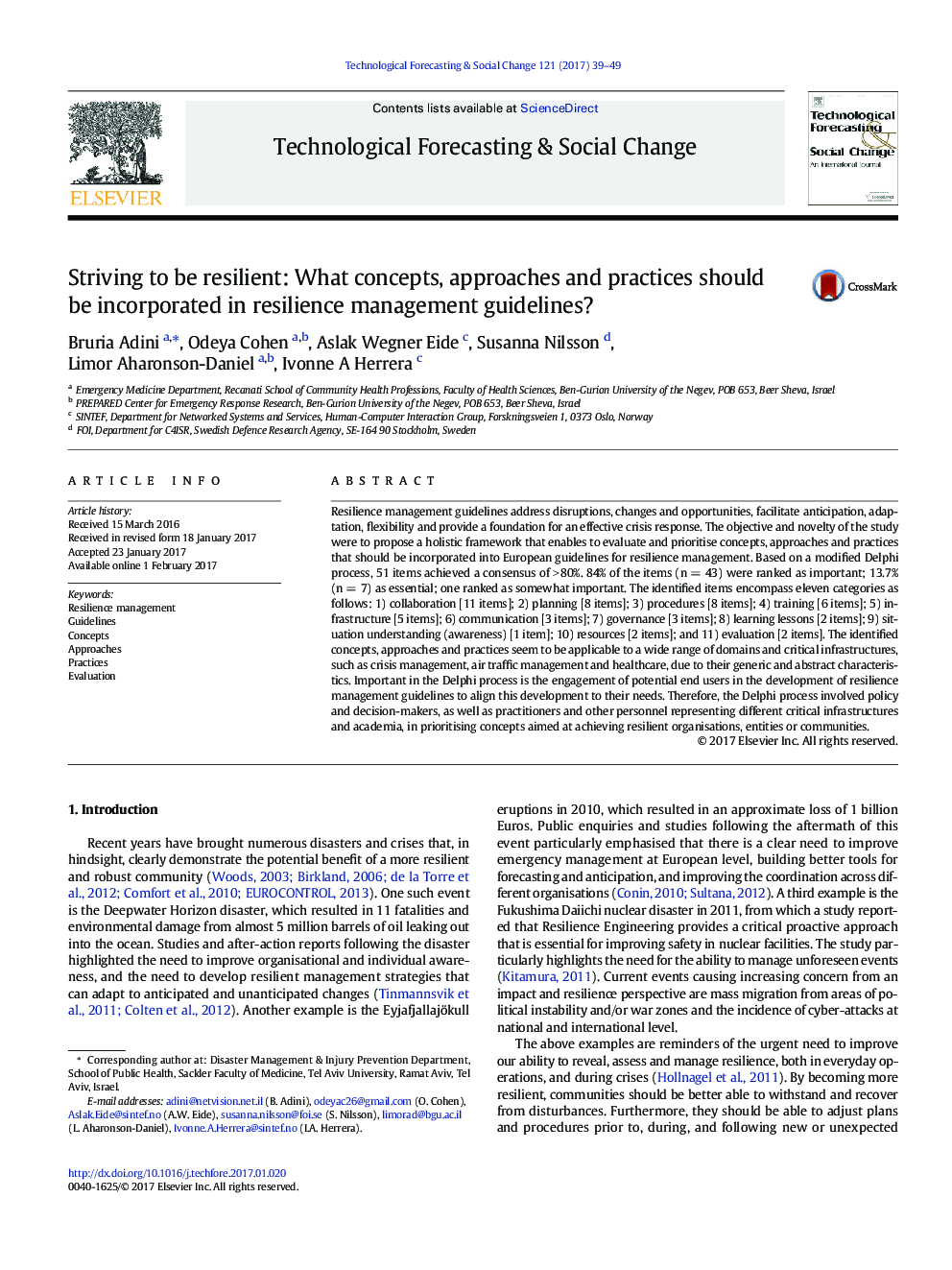| Article ID | Journal | Published Year | Pages | File Type |
|---|---|---|---|---|
| 5036866 | Technological Forecasting and Social Change | 2017 | 11 Pages |
â¢51 concepts were identified for inclusion in resilience management guidelines.â¢7/51 concepts were ranked essential, 43 important, one ranked somewhat important.â¢Diverse content experts form the foundation for generalisable resilience guidelines.â¢Collaboration, planning and procedures are the main categories of resilience.
Resilience management guidelines address disruptions, changes and opportunities, facilitate anticipation, adaptation, flexibility and provide a foundation for an effective crisis response. The objective and novelty of the study were to propose a holistic framework that enables to evaluate and prioritise concepts, approaches and practices that should be incorporated into European guidelines for resilience management. Based on a modified Delphi process, 51 items achieved a consensus of > 80%. 84% of the items (n = 43) were ranked as important; 13.7% (n = 7) as essential; one ranked as somewhat important. The identified items encompass eleven categories as follows: 1) collaboration [11 items]; 2) planning [8 items]; 3) procedures [8 items]; 4) training [6 items]; 5) infrastructure [5 items]; 6) communication [3 items]; 7) governance [3 items]; 8) learning lessons [2 items]; 9) situation understanding (awareness) [1 item]; 10) resources [2 items]; and 11) evaluation [2 items]. The identified concepts, approaches and practices seem to be applicable to a wide range of domains and critical infrastructures, such as crisis management, air traffic management and healthcare, due to their generic and abstract characteristics. Important in the Delphi process is the engagement of potential end users in the development of resilience management guidelines to align this development to their needs. Therefore, the Delphi process involved policy and decision-makers, as well as practitioners and other personnel representing different critical infrastructures and academia, in prioritising concepts aimed at achieving resilient organisations, entities or communities.
